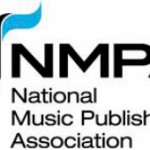Sep 23, 2009
This post will be a break from the usual report or opinion regarding the IP market. I have encountered a rarely used but potentially case-changing doctrine in trademark law with a lot of bite - should it ever be adopted by the U.S. Supreme Court, or codified. I thought the issue could use some exposure. This piece will read a little bit more like a law review article (I apologize), but bear with me - this is important and interesting stuff!
Fair ... Read More
Sep 14, 2009
The Global Competitiveness Report from the World Economic Forum has published a ranking of countries for strength of intellectual property laws. The latest report, which is put together after a study of numerous world economic indicators, identifies Singapore as the country with the strongest intellectual property laws, while the United States is ranked 19th. For the rest of the list, see HERE. For analysis on the gaps in proof stemming from this survey, see Joff's comments HERE over at the IAM blog. Read More
Sep 9, 2009
Back in June, Intellectual Asset Management Magazine first published the IAM 250, which I posted to IP Prospective with some color. As a refresher, the IAM 250 is "[a] public, searchable directory of those individuals who offer world-class services relating to the development and implementation of strategies which enable IP owners to maximise the value of their rights portfolios." It is, as advertised, a listing of the world's leading IP strategists.
Jordan Hatcher over at the Tangible IP blog has put together a ... Read More
Sep 8, 2009
It happened to the music industry. The business model was ripe for reform, but the industry players didn't want to change. So, the radicals changed it anyways, going digital and online, and the players still won't let go.
The book publishing industry held on as long as they could, but digitization and online access is here. Google is the radical in this case. The issue is the same as it was/is in music: the industry is using copyrights and copyright holders as its ... Read More
Sep 1, 2009
You've heard the news. Disney is paying $4 Billion for Marvel's intellectual property portfolio, including 5,000 characters, but the deal will leave a few licensing deals for movies and toys in place without substitution. According to the the NY Times, "[t]he deal was valued at about $50 a share, a 29 percent premium. On Monday, Marvel shares shot up 25 percent to $48.37." Some believe the premium paid for the IP is too much. Nevertheless, there may be implications on the wider M&A market ... Read More
Aug 28, 2009
A product of MIT investments and technologies, IPVision, Inc. now provides analytical and consulting services for companies and clients needing strategic patent analysis and patent portfolio assessment. IPVision harvests its own human capital in professionals experienced in IP management, specializing in assessing corporate positions based on its intellectual property strength and future outlook. Specifically, according to their site:
IPVision services build upon our broad-based experience, public and proprietary datasets and the IPVision analytics platform. Project services and reports span all perspectives of IP issues, ... Read More
Aug 26, 2009
The music industry's next bone to pick with content users and downloaders seems to be online lyrics, published on sites that aggregate this content for users. The National Music Publishers Association has filed a copyright infringement suit against two companies that publish lyrics online for profit. One of the companies is owned by MySpace co-founder Brad Greenspan.
To be honest, I didn't really see this one coming. There are plenty of sites that publish lyrics for free, and so maybe I underestimated the ... Read More
Aug 17, 2009
An interesting article in the New York Times today discusses a Silicon Valley company called Tessera Technologies that creates packaging technology that allows for the production of miniature electronics products. The intrigue of the article to most readers, and to the author, is two-fold: (1) the miniature technology products envisioned by the company's leaders, and (2) the ability of the company to avoid the demise that many Silicon Valley companies have met over the last few years. A certain few last paragraphs ... Read More
Aug 13, 2009
Proof that our economy continues to evolve into a knowledge economy.
In the most recent report in a series of 12 released by the International Intellectual Property Alliance (IIPA), it is confirmed that U.S. Copyright Industries continue to add value to the U.S. Economy and GDP, outperforming many other industries. According to the report:
" . . . in 2007 the gross consumption expenditures and investments of the entire U.S. federal government (a much broader measure than value added) were $979.3 billion. This figure is only ... Read More
Aug 13, 2009
For publicly traded IP-rich companies, the correlation between the strength of an IP management and protection plan and stock price is obvious. The track record of the OT 300 pitted against the S&P 500 between 2006 and November 2008 shows this clearly. The OT 300 outperformed the S&P 500 by just over 460 basis points.
We keep talking about the absence of IP value from corporate balance sheets. It just may be this absence, in fact, that tends to push such IP-rich companies' stocks ... Read More










 Ian McClure is a former corporate & securities and intellectual property law attorney with
Ian McClure is a former corporate & securities and intellectual property law attorney with  Trevor M. Blum is a former Associate in the Chicago-based, valuation practice group of Ocean Tomo, LLC., an intellectual property (IP) consultancy. Additionally, he provided instrumental research support to Intellectual Property Exchange International, Inc., an IP exchange start-up. Trevor holds a B.S. from Indiana University and is currently an MBA candidate at the University of Cambridge, focusing on international business and finance. His interests also include entrepreneurship, economics, and informational visualization. He enjoys running and cycling in his free time. Trevor seeks to bring a transnational business perspective to the blog.
Trevor M. Blum is a former Associate in the Chicago-based, valuation practice group of Ocean Tomo, LLC., an intellectual property (IP) consultancy. Additionally, he provided instrumental research support to Intellectual Property Exchange International, Inc., an IP exchange start-up. Trevor holds a B.S. from Indiana University and is currently an MBA candidate at the University of Cambridge, focusing on international business and finance. His interests also include entrepreneurship, economics, and informational visualization. He enjoys running and cycling in his free time. Trevor seeks to bring a transnational business perspective to the blog. 